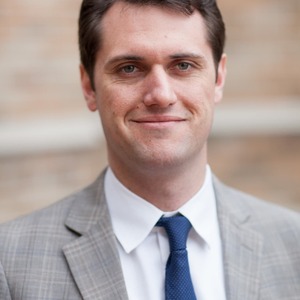Business: What Is It Good For?
What is the purpose of business? What is its role in a just and humane society? Many believe that business is a morally suspicious activity, a suspicion reflected in the common belief that businesspeople should “give back” to society. Is business an activity for which one should atone? Can business contribute to the common good? Are people right to be suspicious of business? This seminar draws on philosophy, business, and economics to evaluate the purpose and practice of business. We will examine several competing perspectives, including some drawn from Catholic social teaching, to explore whether, and if so, how, one can be virtuous while at the same time engaging in business in a market economy.
Some questions this seminar addresses are:
- Should we have a market economy? What are the principal arguments in favor of a
market economy, and what are the principal objections to a market economy? - What is the connection between business and the common good?
- Is there such a thing as “honorable business”? If so, what is it, exactly? What is
dishonorable business? - What are the responsibilities of an ethical business leader to self, to others, to society, and
to the world? - What is the connection between business and the common good? What is the Catholic
perspective? - What are the public social institutions—political, economic, religious, moral, and
cultural—that enable and encourage honorable business?
By the end of the seminar, you should be able to:
- Explain how a market economy works and what role business plays in it.
- Articulate and evaluate central challenges, including moral challenges, that business and
market economies face. - Articulate and evaluate Catholic positions on core areas of business and economics.
- Express your own position on the connection between business and the common good.
Academic Directors
James Otteson

James R. Otteson is John T. Ryan Jr. Professor of Business Ethics in the Mendoza College of Business at the University of Notre Dame. He also serves as the faculty director of Mendoza’s Business Honors Program.
He received his BA from Notre Dame from the Program of Liberal Studies, or “great books” program. He received his PhD in philosophy from the University of Chicago. His most recent books are Honorable Business (Oxford, 2019), Seven Deadly Economic Sins (Cambridge, 2021),
and Should Wealth Be Redistributed? A Debate (with Steven McMullen; Routledge, 2023).
He specializes in business ethics, classical political economy, and eighteenth-century British moral philosophy. He is an internationally recognized expert on Adam Smith. He lectures widely on Adam Smith, classical liberalism, and business ethics, and his work has been profiled in the Wall Street Journal and many other venues.
Craig Iffland

Craig Iffland is Program Director of the Business Honors Program at the University of Notre Dame’s Mendoza College of Business.
He received his BA from the University of Virginia in Religious Studies and a MLitt in Philosophy from the University of St. Andrews. In 2021, he received his PhD in Moral Theology from the University of Notre Dame. His dissertation focused on the relationship between morality, obligation, and law in the thought of Thomas Aquinas. In addition to the moral thought of Thomas Aquinas, he has published articles on the ethics of killing in warfare, the formation of practical wisdom, and the theme of divine revelation in contemporary films.
He has taught undergraduate courses in the Mendoza College of Business on the moral purpose of business, the historical and philosophical evolution of our understanding of money and wealth, and the intersection of Catholic Social Thought with contemporary business practice.